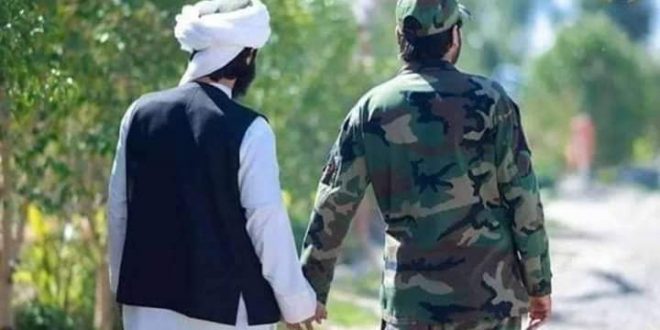As US point-man for Afghanistan reconciliation Zalmay Khalilzad put it, the Taliban won’t accept a permanent ceasefire until there is a political settlement in Afghanistan, meaning the US is no longer capable of holding the group to the commitments it made during the US-Taliban agreement. It was explicitly mentioned in the deal that there would be a reduction in violence observed and then later on a ceasefire would be agreed upon in the intra-Afghan talks. Not only there wasn’t a tangible reduction in violence witnessed but the peace rhetoric has also been missing from the whole atmosphere of the peace process. The violence rages on the ground while negotiating sides in Doha have locked horns on some sticky points. Taliban wish to call their 20 years of war against the US and the Afghan security forces as Jihad and want the Hanafi School of Jurisprudence as a guide to proceedings in the talks; however, the negotiating team of the Islamic Republic of Afghanistan doesn’t consent. The lagging on these issues directly translates into increased violence and show of military muscles by both sides on the battlefield – that too under the guise of reduction in violence. In an opinion piece, Pakistan’s Prime Minister urged the Afghan parties into conflict to reduce violence but he said the peace negotiations shouldn’t be conducted under coercion. He, in a thinly-veiled remark, wants to convey that the country supposedly won’t pressurize the Taliban to reduce violence or agree to a ceasefire. Also, he implies that neither should the US or any international country try to do so. As he consistently renews calls for deserving credit for the launch of intra-Afghan talks, it also seems the country’s obligation to make the Taliban agree to a truce then. The lip service doesn’t suffice; if the country brought the Taliban to the negotiating table and made them agree to talks, it’s not highly impossible to make them agree to a truce (a temporary one if not permanent) too – it depends if the country wants so. But again, there is a contradiction in his talks. He advises the world to resist the temptation for setting unrealistic timelines as he warned against a hasty international withdrawal from Afghanistan. The country, on one hand, opposes US presence and wants the country rid of Afghanistan through the Taliban but again purports to have a concern against a hasty withdrawal. There are signs of hypocrisy there too. As Imran Khan calls for guarding the Afghan peace process against regional spoilers, it’s Pakistan that Afghans are highly concerned about in terms of playing both the facilitator and the spoiler’s roles. Therefore, it all depends on the country’s intentions; if it sincerely wills to see peaceful Afghanistan, then coercing the Taliban for truce seems the only way now put an to the bloodshed of Afghans. Otherwise, the country’s is seemingly continuing to pull the strings of the insurgents in practice – asking them to continue the war – until the interests of the Taliban and that of Pakistan’s are secured in the talks while the Afghan people’s demands don’t carry weight and are marginal.

 Afghanistan Times
Afghanistan Times



